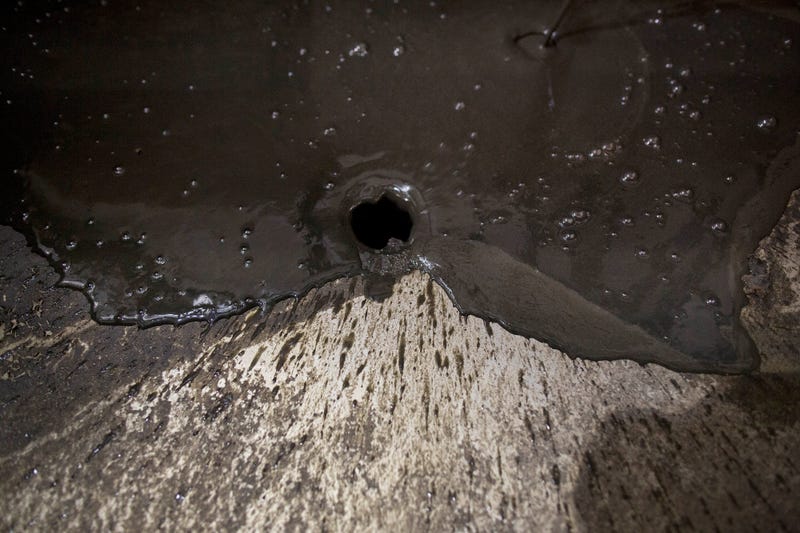
NEW YORK (1010 WINS/WCBS 880) -- The poliovirus was found in the sewage of New York City, suggesting it is circulating locally weeks after a case was confirmed in the Hudson Valley, health officials said Friday.
Wastewater samples from the city provided to the U.S. Centers for Disease Control and Prevention identified the presence of polioviruses, indicating a risk of community transmission, the city and state health departments said in a joint press release.
No cases of polio have been confirmed in the city yet, but state health commissioner Dr. Mary Bassett warned Friday that “for every one case of paralytic polio identified, hundreds more may be undetected.”
The city’s health commissioner, Dr. Ashwin Vasan, urged vaccination, saying “the risk to New Yorkers is real but the defense is so simple.”
“With polio circulating in our communities there is simply nothing more essential than vaccinating our children to protect them from this virus,” Vasan said. “And if you’re an unvaccinated or incompletely vaccinated adult, please choose now to get the vaccine. Polio is entirely preventable and its reappearance should be a call to action for all of us.”
A polio patient in Rockland County in July was the first person known to be infected with the virus in the U.S. in nearly a decade. That person was unvaccinated and is suffering from paralysis.
Wastewater samples collected in both Rockland and Orange counties this summer have contained the virus.
LISTEN TO 1010 WINS
The discovery of the virus in wastewater samples underscores “the urgency of every adult, including pregnant New Yorkers, and children staying up to date with the polio immunization schedule, particularly those in the greater New York metropolitan area,” officials said.
The CDC has been working with state health officials in recent weeks as they investigate polio in the state and increase vaccine access.
Polio, once one of the nation’s most feared diseases, was declared eliminated in the United States in 1979, more than two decades after vaccines became available. It is incurable and can cause permanent paralysis in the arms and legs, as well as death, in the unvaccinated.
A majority of people infected with polio have no symptoms, but can still shed the virus and give it to others for days or weeks. A small percentage of people who get the disease will suffer paralysis. The disease is fatal for between 5-10% of those paralyzed.
All school children in New York are required to have a polio vaccine, but enforcement of vaccination rules in some areas can be lax. Rockland and Orange counties are both known as centers of vaccine resistance. Statewide, about 79% of have completed their polio vaccination series by age two. In Orange County, that rate is 59%. In Rockland it is 60%.
New York City is being forced to confront polio as city health officials are struggling to vaccinate vulnerable populations against monkeypox and adjusting to changing COVID-19 guidelines.
“We are dealing with a trifecta,'' Mayor Eric Adams said Friday on CNN.
“COVID is still very much here. Polio, we have identified polio in our sewage, and we're still dealing with the monkeypox crisis,” the mayor said. “But the team is there. And we're coordinating and we're addressing the threats as they come before us, and we're prepared to deal with them with the assistance of Washington, D.C.”
The Associated Press contributed to this report.




